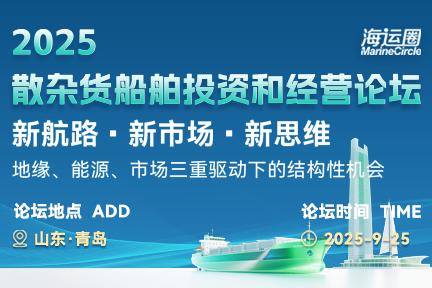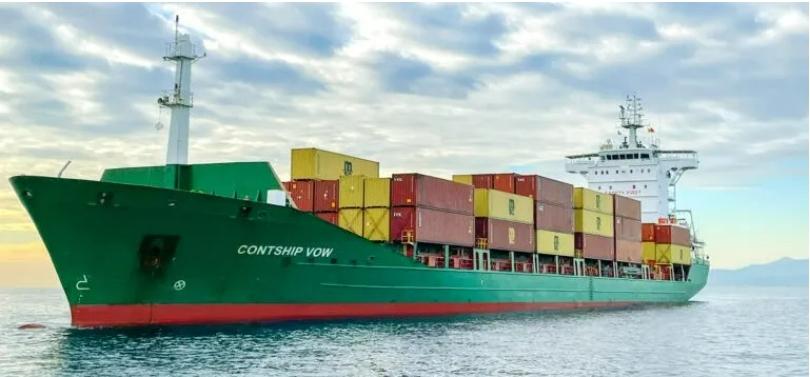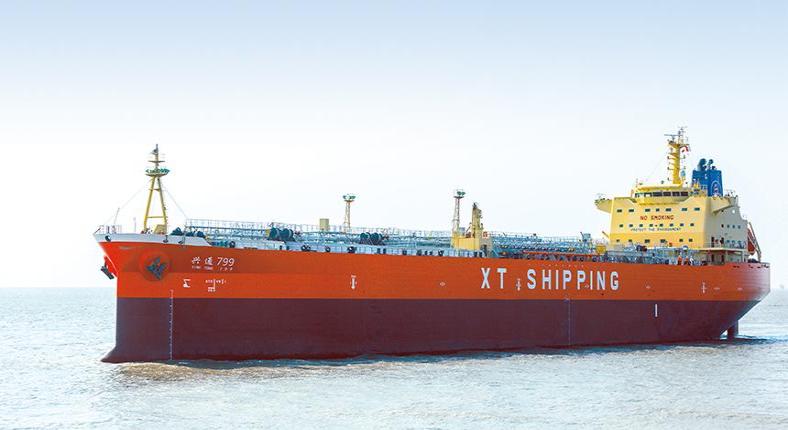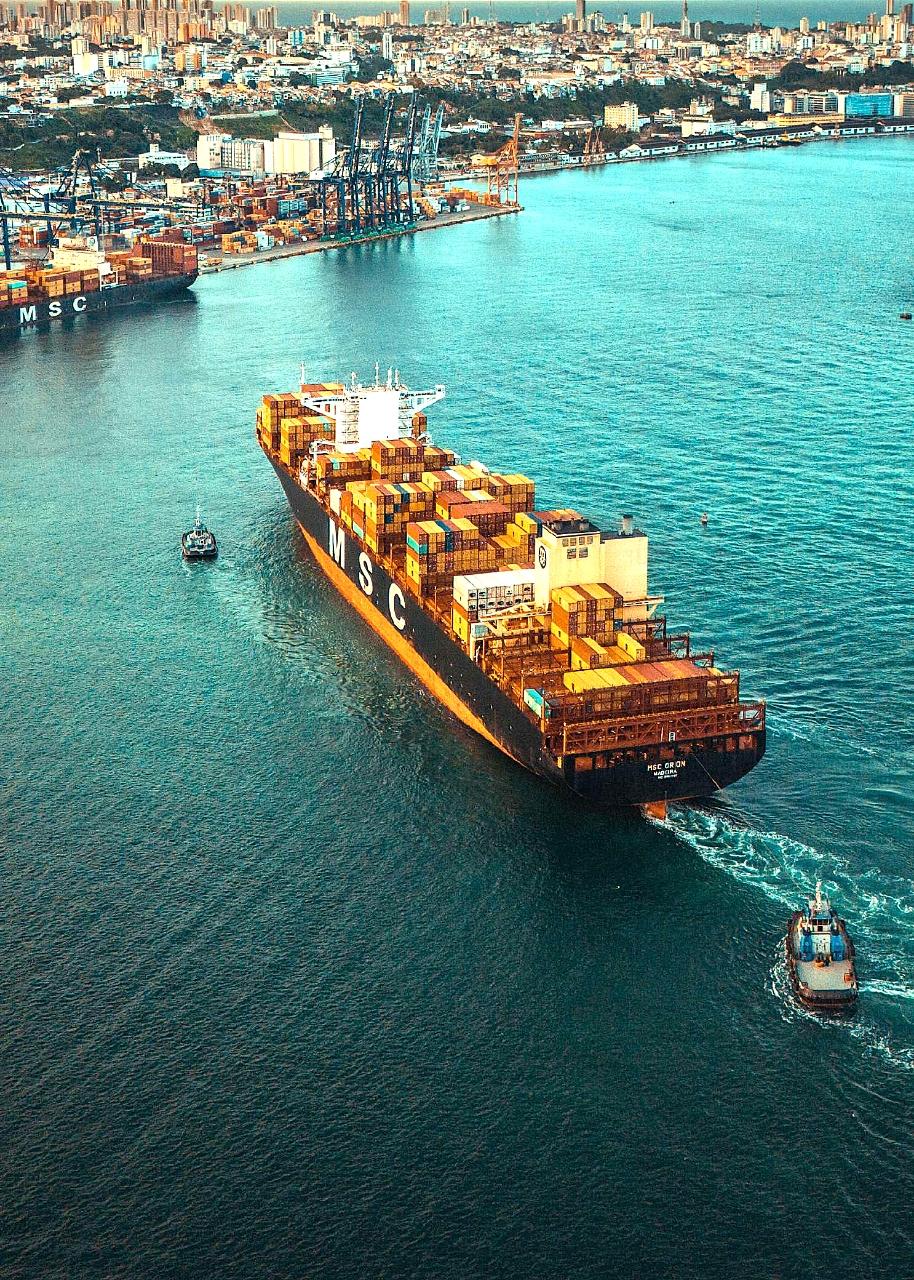
【摘要】泊位租约可能是最古老的合约,在泊位租约下有关NOR及LAYTIME计算的争议数不胜数。通常在泊位租约下,船舶需抵达指定的泊位才算是抵达船;如果碰上坏天气导致船舶不能直接靠泊,船舶按港口当局要求在锚地抛锚等泊,在这种情况下,递交的NOR是否有效?港口当局是否可以算是租家的代理人?本文通过The “Isabelle”案,再来谈一谈这一问题。
【关键词】Berth Charter、港口当局、代理人、强制
随着冬天的到来,中国沿海港口周期性地受大雾大风的影响变得异常显著。尤其是长江口区域,一旦受大雾大风影响,基本上封港封航。封港直接导致需挂靠长江里港口(比如罗泾,南通,张家港,江阴等)的船舶(以巴拿马或好望角为例,小的船可能不受此影响)无法进出,于是就引出众多涉及到NOR及LAYTIME计算的问题。如果是典型的泊位租约,泊位是否有船将直接影响在长江口递交NOR的有效性问题。而泊位的船受大风大雾影响,是否还正常作业,这也将直接影响LAYTIME的计算。
本文先从一日常中碰到的说起。
一R租家安排到上海港卸货,但具体卸货的地方为绿华山减载平台,减载后到罗泾继续卸。期间正好碰到大风天气,导致封航,绿华山平台在船舶抵达的时候并没有船靠泊;于是租家声称合同为泊位租约,因此在锚地递交的NOR无效,LAYTIME无法开始起算。
关于一合同是泊位租约还是港口租约,可以参之前的文章《关于泊位的若干问题》,已经详细介绍,不在此重复。
现在来看该租约下合同的相关条款,合同第8条规定如下:
8. DISCHARGING PORT(S)
8.1 Upon completion of loading and final draft survey and if tide and weather permit the Vessel shall proceed at the nominated speed, via the direct and/or customary route to the nominated Discharging Port(s) as ordered by Charterer where the Vessel shall discharge always afloat as specified in the Fixture Note.
合同第13条规定如下:
At Loading Port(s) and Discharging Port(s) NOR shall be tendered as specified in the Fixture Note,and may be tendered whether the Vessel is in berth or not, whether in free pratique or not, whether in customs clearance or not, but in case the Vessel is an ore/oil or ore/bulk/oil carrier the Master must possess a valid gas free certificate (as Owner provides for in clause 4.2(g))and present same as required by the Port/Harbour Authority or berth operator.
合同第14条规定如下:
14.3 At Loading and Discharging Ports
(a) Time used in the first shift of the Vessel from any waiting place to the berth shall not count as laytime or time on demurrage if the Vessel is already on demurrage. Cost of the first shift shall be for Owner's account.
而在Cleanrecap里面关于卸港的部分描述如下:
1-2sb,1-2sp PRC, or
该租家说是泊位租约,很显然只是简单地从“1-2 sb, 1-2 sp PRC”这里判断;但是如之前众多文章所说的,合约应该作为一个整体来看待,不能孤立地只看某个或某句特定的措辞。
纵然Clean recap里面说的是1-2个安全泊位,1-2安全港口,租家有选择权;但是第8条说的是,卸货港按租家命令:Discharging Port(s) as ordered by Charterer。租家最终宣卸货位置的电邮如下:
We declare Shanghai as disport and agent as below:
…
这里说的是港口,而非指定泊位。如果合同第8条的措辞改成了discharge berth(s) as ordered by Charterer,而租家最终宣的卸货位置的电邮如果如下:
We declare Lvhuashan lightening platform as discharge berth and agent as below:
…
那么情况在表面上看起来像个泊位租约合同了,如果Diplock勋爵在The “JohannaOldendorff”案中所说的:泊位租约是船舶前往装货或卸货单独的泊位,无论是在租船合同本身命名的,还是由租家在行使明确的权力后指定的。
Berth charters are those in which the place to which the vessel is to proceed and there load or discharge is a single berth, either named in the charter-party itself or nominated thereafter by the charterer in the exercise of an express power to do so.
但是结合第13条NOR递交条款及第14条laytime计算条款,可发现不管船舶是否在泊位都可以递交NOR,从任何等泊的位置到泊位的移泊时间不计算装卸时间,那么情况就如LondonArbitration 1/09案一致了。在该案中,法庭拒绝了租家的主张。结合NOR递交的条款WIBON/WIPON/WCCON/WEPON,船舶抵达三个中的其中一个锚地便可视为到达船;及Laytime计算条款,移泊时间扣除不算,法庭最终判该租约为港口租约,纵然合同描述装货位置为“1 SBP Zhenjiang”。
该案可以参《Laytimeand Demurrage》Chapter3 Commencement of laytime 3.33.
3.33 In London Arbitration 1/09,32 the tribunal rejected the charterers’ submission that the charter in question was a berth charter in respect of the load port where it provided for the vessel to loadat: 1 SBP Zhenjiang.
基于以上理由,及《关于泊位的若干问题》一文中所详细说明的可以得出R租家的合同为港口租约,船长有权利在抵达绿华山的习惯性等泊锚地就递交NOR。那么如果想将港口租约合同转变成泊位租约合同,将做如何修改呢?
接下来就来看看本文将介绍的,The “Isabelle”案。
一、基本案情
Cosamar Compania NavieraS.A.(以下简称“船东”)在1980年12月8日
将油轮Isabelle(以下简称“该轮”)以Shellvoy 3的格式租给Total Transport Corporation(以下简称“租家”),去执行一个从非洲的阿尔及利亚装货到美国卸的程租航次。
按航次指示,该轮前往阿尔及利亚的Bejaia港装货,于1980年12月19日抵达Bejaja港的防波堤附近并抛锚,1526的时候船长发了如下电报给了代理。
Anchored Bejaia road December 19 1220 hours stop, Vessel ready to load please tender notice of readiness on my behalf.Master.
由于港口压港,及之前因受“Ressac”影响而造成的装货延误,该轮一直等到12月29日才收到通知说可以靠泊装货,但事实证明这是一场虚惊。1981年1月1日的时候终于有泊位可以靠泊装货,随即开始靠泊装货。但是1月2日Bejaia港又受到“Ressac”严重影响。一大早,天气就变坏,船舶开始很严重地颠簸,随即安排了两条拖轮将该轮顶在泊位上。然而到了0440的时候,尽管在拖轮的协助下,该轮摇晃颠簸地更加厉害。于是港口当局要求该轮立即离开泊位到锚地去。
装货停止,引航员上船,该轮于0740被移到锚地。该轮在锚地一直呆到1月10日才重新靠泊,最终于10日的1822完货离港。
发生这一系列事情,船东与租家之间的纠纷主要就三件事情。首先,在船舶等待泊位的期间,从1980年12月19日至1981年1月1日的13天期间,是否计算装货时间;其次,租家是否有责任承担1981年1月2日试图维持船舶在泊位的拖轮协助的费用;第三,租家是否对1月2日船舶从泊位移到锚地的移泊费负责。
合同的相关条款如下:
4. Subject to the provisions of clauses 5, 10, 22 and 23 hereof the vessel shall, with utmost despatch, proceed to a berth, dock, anchorage, submarine line, alongside a vessel or vessels or a lighter or lighters or any other place whatsoever as ordered by Charterers in one safe port Algeria or so near there unto as she may safely get, and thereload . . . [and a part cargo is then specified].
8. The cargo shall be loaded into the vessel at the expense of Charterers,and at their risk only up to the vessel's permanent hose connections. The cargo shall be discharged from the vessel at the expense of Owners and at their risk only up to the vessel's permanent hose connections. Owners shall unless otherwise notified by Charterers or their agents supply all hands, equipmentand facilities required on board for mooring and unmooring and connecting anddisconnecting hoses for loading and discharging. If shore regulations do not permit fire on board and steam is necessary for discharging purposes Charterersshall provide such steam at their expense.
11. Charterers shall have the right of requiring the vessel to shift at ports of loading or discharging from a loading or discharging berth or place and back to the same or to another such berth or place once or more often on payment of all additional expenses incurred.
14. Subject to the provisions of clause 15 hereof laytime shall at eachloading and discharging port commence when the vessel is in all respects ready to load or discharge and written notice thereof has been received from the master or Owners' agents by Charterers or their agents and the vessel is securely moored at the berth or other loading or discharging spot. Whether or not thespecified berth or other loading or discharging spot is available andaccessible, if the vessel is nevertheless ordered by Charterers to wait beforeproceeding thereto, laytime shall commence six hours after written notice ofreadiness has been received and the vessel is securely moored at the customaryanchorage.
20. The vessel shall be addressed to agents nominated by Charterers at ports of loadingand discharging.
There was also an ETA clause, which provided (inter alia) as follows:
The Captain shall inform Charterers' Agents by wireless message dispatchto "TOTALINTRA GENEVA"the approximate date and hour of arrival at loading port. One of the provisionsfor giving such a message was: 72 and 48 hours prior to arrival at loadingport, Master is to send a wireless message to Charterers Agents address:"TOTALINTRA GENEVA" and also to Agents at loading port, advisingvessel's approximate date and hour of arrival failing which Charterers shall beallowed an additional 24 hours under Clause 14.
二、商事法院判决
船东和租家之间的纠纷主要涉及在Bejaia港的滞期费和其他相关费用。Robert Goff法官重述Bejaia港的一些基本情况,该港有一个码头,用来装载大型油轮,如该轮船上的油。码头在外港,在码头的两边都有一个装货泊位。Bejaia港容易受到一种被称为“Ressac”现象的影响。当法国普罗旺斯和朗格多克海岸发生的西风和暴风袭击该港的时候,受到涌浪影响,如果船舶继续停留在泊位上,则可能导致加油软管破裂和船舶损坏的风险。当Bejaia的港务长收悉法国海岸的大风报告时,他知道“Ressac”将在20小时内抵达Bejaia,并在大约一个星期后消退。因此,港务当局会有很多警告,如果觉得有需要,他们会选择封港。如果一艘船正在靠泊装货,他将决定是否应该在恶劣天气下坚持完成装货(可能在“Ressac”开始时需拖轮协助),或者是否应该离开泊位到锚地去,然后等天气好装再靠泊继续装货。
关于NOR,RobertGoff法官认为,船长的电报被传到了瑞士的一个广播电
台,在正常情况下,这个广播电台将通过电报传送给Bejaia港的代理。(由于预计阿尔及利亚电台的延迟,这种通信手段被船长使用。)没有证据显示电报信息到达代理的时间。Robert Goff法官认为尽他所能,推断它一定是在第二天开始办公时间到达代理的时候,例如12月20日的8点00分,而且不久之后必须由代理已经传达给租方。
参合同的相关条款, 关于第一个争议部分,即在等泊的13天时间是否装货时间可以开始起算。租家抗辩的理由是基于合同第14条的第二句。关于拖轮协助的费用,是关于合同第8条,而移泊费用是在第11条下。
Robert Goff法官他首先考虑船舶在等待泊位的期间是否起算装货时间的问题。合同第4条已清晰规定,船舶应按照租家的命令,尽力速遣地驶往泊位等等,这是(以第14条第2句为准)泊位租约。因此船舶将不是到达船直到她抵达装货的泊位,并且由于船舶抵达港口时指定的泊位不可用,船东表面看起来有承担延误的风险。基于这个原因,在本案中,船东接受了,如果要在这一点上取得成功,就必须依靠合同第14条的第二句话。为使自己符合这一规定,他们必须表明,在驶往指定泊位之前是租家要求船舶呆在锚地。
Now it is plain from cl. 4 of the charter, which provided that the vessel should with utmost dispatch proceed to a berth, etc., as ordered by charterers, that this was(subject to the second sentence of cl. 14) a berth charter, so that the shipwas not an arrived ship until she entered her loading berth, and the shipowner prima facie bore the risk of delay by reason of the nominated berth being inaccessible when the vessel arrived at the port.
For this reason, it was accepted by the owners in the present case that,if they were to succeed on this point, they had to rely on the second sentence of cl. 14. To bring themselves within that provision they had to show that the vessel was orderedby the charterers to wait before proceeding to her berth.
在船东的辩护中,他们以不同的方式表达了他们的观点:
(1)他们声称,港口当局和或Sonatrach应该被认为是租家的代理,关于给予靠泊指示及从1980年12月19日1220到1981年1月1日在锚地等泊,船舶是在当局和或Sonatrach的要求下在锚地等泊而不是靠泊装货。
(2) 他们声称,从租家指定代理给船东代理的装货指示,租家明确和或暗示地要求船舶在锚地等待靠泊。
(3) 他们声称,在船舶抵达Bejaia之前通知船舶在锚地等泊等待进一步指示是Bejaia港口当局要求的。
(4) 他们声称,租家未能在船到达Bejaia之前,或者在船到达之前和停泊时间之间就船舶的靠泊作出明确的命令,暗示要求船舶前往她的装货泊位。
(5) 他们声称,租家未能给予船舶这种命令,按合同第14条已经放弃了任何要求。
Robert Goff法官认为在考虑船东陈述各种理由之前,他需要考虑合同第14条的第二句话,现在在租船方面对此都熟悉的条款。其效果是,尽管租船合同显然是泊位租船合同,但是等待进入指定泊位或其他装货或卸货地点的风险却被放在租家身上,例如“等待泊位时间损失算作为装货时间”或“作为卸货时间” “的情况下,视情况而定;在“泊位”一词后插入“可到达”字样;或者通过装卸时间开始起算“不管是否在泊位”。但合同第14条的第二句不是那些熟悉的条款之一。此外,还有一个句子明确规定,在收到准备通知并且船舶安全地停泊在泊位或其他装货点和卸货点的情况下开始装卸时间,其效力取决于租家的等待指示。合同第14条第二句话给出的清晰迹象及合同作为一个整体,就是在特定的情况下,在前往指定泊位前租家已经要求船舶等泊。
Which have the effect that,although the charter-party is prima facie a berth charter, nevertheless the risk of waiting to enter a nominated berth or other loading or discharging place is placed on the charterers, for example, by such words as "time lost in waiting for berth to count as loading time" or "as discharging time", as the case may be, by inserting the words"reachable on arrival" after the word "berth"; or by makinglaytime commence to run "whether in berth or not". The secondsentence of cl. 14 is not one of those familiar clauses. Moreover, it follows asentence which expressly provides that laytime is to commence when notice ofreadiness has been received and the vessel is securely moored at the berth orother loading or discharging spot, and its effect is contingent upon orders bythe charterers to wait. The clear impression given by the second sentence, in the context of cl. 14 and ofthe charter-party as a whole, is that it is legislating for a particular situation where the charterers have ordered the vessel to wait before proceeding to her nominated berth.
Robert Goff法官认为这句话一开始看起来相当出人意料,其措辞如下。
Whether or not the specified berth or other loading or discharging spot is available and accessible . . .
Robert Goff法官认为在指定泊位可用和可以到达的情况下,容易理解该条款的适用性,而租家则命令船舶等待。在这种情况下,就泊位租约而言,非常有意义的是,如果其他特定的标准得以实现,则装卸时间应该开始起算。要理解第二句如何适用于指定泊位不可用和无障碍的情况,并不容易。在这种情况下,一开始看来似乎没有什么动力让租家下令船舶等待,这个租约是一个泊位租约,而这条船在合同第4条下,在泊位空出来之前等泊时间将是船东的风险。然而,第二句起草的可能意思是,以便租家可以在泊位仍然被占用的情况下给予等待的指示,以防止船舶在泊位变空时立即进入。Robert Goff法官认为无论如何,毫不怀疑第14条第二句话并不打算强加给租家因拥挤而等待泊位的风险。
这句话可能的作业是在每一个情况下都是租家要求船舶等泊。在装货港,这可能是由于货物可用性方面的一些困难,或可能是由于租家希望首先装载其他船舶的服务;在卸货港,这可能是由于相当的原因,例如相关的岸上货舱缺乏储存空间,或者再次希望优先考虑另一艘船。
It is easy to understand the applicability of the provision incircumstances where the nominated berth is available and accessible, andcharterers nevertheless order the vessel to wait; in such a case, in thecontext of a berth charter, it makes very good sense that the laytime shouldnevertheless commence to run if the other specified criteria had beenfulfilled. It is not so easy to understand how the second sentence would applyin circumstances where the nominated berth was not available and accessible. Insuch circumstances there would at first sight appear to be little incentive tocharterers to give orders to the vessel to wait -the charter is a berth charter, and the vessel would,under cl. 4, simply have to wait at the shipowners' risk for the berth to become free. It is possible, however, that the second sentence wasdrafted so as to allow for the possibility of charterers giving orders to waitwhile the berth was still occupied, to prevent the vessel from entering as soonas it became free. At all events, I have no doubt that the second sentence of cl. 14 was not intended to have the effect of imposing upon the charterers the risk of waiting for berth by reason of congestion.
在这个背景下,Robert Goff法官转而考虑船东的主张。他们的第一个论点是船舶是因为港务局和/或Sonatrach的要求才在锚地等泊,为此目的是租家的代理人。现在法院的证据显示当时只有一个该轮可以装载的泊位(即码头的一边)。然而,Robert Goff法官认为租家实际上只是把它交给港口当局来指定一个装货泊位,也就是确定船舶装货的位置。但是这并不能得出授权港口当局给船舶等泊的任何命令,都是他们代表租船人发出的命令。事实上,港务局已经下令等泊,没有证据表明Sonatrach这样做。但是,港口当局对港区内的船舶实行控制,而且由于港口内只有一个油轮的装货码头和港口拥堵,因此不可避免地港口当局在实施自己的行政管理方面的功能,将命令船舶在港外等候,而其他船舶在码头装货。Robert Goff法官认为在本案中根本没有证据显示港务当局正在履行除此之外的其他职能。当然,他们没有按照租家的指示行事,这些船东无法控制港口的这方面的权力。而且不可能推断港务局等待的命令是租家的命令。船东的这种主张只是试图将合同第14条的第二句话理解成,就好像 “等待泊位的时间损失作为装货时间”(或“按卸货时间”,视情况而定)一样。不能以这种方式理解,该主张不成立。
It is against this background that I turn to consider the owners'submissions. Their first argument was that the vessel was required to wait bythe port authorities and/or Sonatrach, who were for this purpose the agents ofthe charterers. Now the evidence before the Court indicated that there was atthe time only one berth (i.e., one side of the jetty) at which the Isabelle could have loaded. I will, however, assume that, infact, the charterers simply left it to the port authority to nominate a loading berth - i.e., to identify the berth where the vessel was to load. But it does not follow from this delegation that any order by the port authority to thevessel to wait was an order made by them on behalf of the charterers. Inpoint of fact, the port authority must have ordered the vessel to wait. Thereis no evidence that Sonatrach did so. But every port authority exercises control over the ships in the area of the port and where, as here, there is only one loading jetty fortankers and congestion in the port, it is inevitable that the port authority,in the exercise of its own administrative function, will order vessels to wait outside the harbour while other vessels load at the jetty. There is no evidenceat all in the present case that the port authority was fulfilling any other function than this. Certainly they were not acting on any instructionsfrom the charterers, who had no control over the port authority in thisrespect; and it is quite impossible to infer that the orders of the port authorityto wait were the orders of the charterers. This submission of the owners is simply an attempt toread the second sentence of cl. 14 as though it read "Time lost in waiting for berth to count as loading time" (or "as discharging time",as the case may be). It cannot be read in that way, and the submission fails.
Robert Goff法官认为船东的第二个主张依赖于来自Totalintra和代理的某些通信。来自Totalintra的信件是装货指示,以及随后对这些指示进行的修改,考虑到卸货港的可用水深限制了装货量。这两条消息都不能被解释为等待的命令;第一个是下令,不等待,第二个只是关心装货量。来自代理的三条电报仅仅是在停泊之前向船东的管理代理人报告在靠泊之前的靠泊计划,这些当然不是等待的命令。
Robert Goff法官认为即使代理的信息可以被解释为等待的命令,但他对代理在任何相关方面不是租家的代理人的证据感到满意。确实,为了本次诉讼程序的目的,租家只有正式承认,代理收到了一个按合同第14条一个有效的电报以电报方式发送的准备就绪通知书。因此,Robert Goff法官认为不需要再判断是否是租家的代理人。有一些证据表明,实际上在Bejaia港准备就绪的通知是由这些租船人处理的,尽管没有在日内瓦(毫无疑问是租家的代理人)收到,但可能是,作为托运人的Sonatrach,是为了在该港口接收准备就绪通知的目的而代表租家的。但Robert Goff法官认为不必对这一点作出判决,无论如何,代理在这个港口在这个合同下的一般立场是,根据合同第20条的规定,根据租船人的指定,它们被任命为船舶代理人。
Even if the messages from CNAN could be construed as orders to wait, I am satisfied on the evidence that CNAN were not, in any relevant respect, agents of the charterers. It is true that for the purpose of the present proceedings only the charterers formally admitted that the telegraphic notice of readiness constituted when received by CNAN a valid notice of readiness for the purposes of cl. 14 of thecharter-party. I do not, therefore, have to decide whether CNAN were the agents of the charterers for this purpose. There was some evidence that in practicenotices of readiness given at Bejaia were treated by these charterers as havingbeen received, although not received by Totalintra in Geneva (who undoubtedlywere agents of the charterers), and it may be that Sonatrach, as shippers, wereagents of the charterers for the purposes of receiving notices of readiness inthat port. But I do not have to decide that point; and in any event the general position of CNAN inthis port in relation to this charter was that they were appointed ships' agents on the nomination of the charterers pursuant to cl. 20 of the charter.
合同第20条规定如下,该条款在目前市场下很常见,装卸港的代理由租家来指定。
The vessel shall be addressed to agents nominated by Charterers at portsof loading and discharging.
Robert Goff法官认为这个条文可能缺乏明确性,但他确信,就其真正的解释而言,只是指在相关的港口将船舶交给的代理人,也就是说在那个港口作为船舶代理人,应该是租家为此提名的代理人。这个结论是从该条款中使用的词语中得出的,但是通过信息得出这样的结论是强有力的,即在一些仲裁中海事仲裁员得出了同样的结论,有趣的是,在下一版的Shellvoy的格式中是毫无疑问的。此外,根据法院代理以普通方式作为船舶代理人行事的证据,向船东管理代理人提供信息,处理向船舶提供燃油,水和现金,并向船东支付在Bejaia港的船舶和代理费。而关于准备就绪通知书,没有证据表明代理以任何方式作为租家的代理,但是对于航次租船人的港口代理人(而不是定期租船人的代理人)。事实上,即使是船长的电报准备就绪通知书,表面上也没有被送到代理作为承租人的代理人,而是作为船舶代理人传送给他们进行转发。在这种情况下,Robert Goff法官认为,即使代理给了船舶等泊的命令,但他们从来不是租家为此目的的授权代理。
The clause is perhaps lacking in clarity, but I am satisfied that on its true construction it means simply that the agents towhich the vessel was to be addressed at the relevant port, that is to say whichwere to act as ship's agents at that port, were to be such agents as were nominated for that purpose by the charterers. That conclusion is derived from the wordsused in the clause, but I am fortified in reaching that conclusion byinformation that in a number of arbitrations the same conclusion has beenreached by maritime arbitrators, and it is interesting to note that in the nextedition of the Shellvoy form the point is put beyond doubt. Furthermore, on theevidence before the Court CNAN acted throughout in the ordinary manner asships' agents, furnishing information to the owners' managing agents, dealingwith the supply of bunkers, water and cash for master, and billing the ownersfor their disbursements on the ship's behalf at Bejaia and for brokerage fees.Putting on one side the point on notice of readiness, there is no evidence thatCNAN acted in any way as agents for the charterers, there being little functionfor a voyage charterers' agent (as opposed to a time charterers' agent) at aloading port; indeed, even the master's telegraphic notice of readiness appearson its face to have been sent not to CNAN as charterers' agents but submittedto them as ship's agents for onward transmission. In these circumstances I am satisfied that, even if CNAN had given the vessel orders to wait, they were never authorized agents of the charterers for this purpose.
租家提出诉讼的最后三个理由,Robert Goff法官认为可以很简短地处理。第三个理由,港口当局下令是作为租家的代理人。基于已经给出的理由,他们并不是。第四个理由,由于拥堵和天气条件的共同作用,租家在船舶不能使用泊位的期间,暗示下令船舶等待。Robert Goff法官认为没有任何理由说在合同第14条下,租家会给予暗示的命令。关于最后的理由,在事实上或法律上根本没有任何放弃或禁止反言的基础,租家或其代理人没有相关的陈述,或船东对真诚方面的任何表示有任何作为或不行为。
基于以上理由,Robert Goff法官认为船东关于第一点索赔不成立。
It follows that the owners' claim on the first point fails.
关于该轮在泊位期间拖轮协助的费用14,406美元,船东认为与合同第8条有关,理由是拖轮协助的费用构成在该条款下的货物装载费用的一部分,该费用属于租船人承担。但是Robert Goff法官无法接受船东该主张。该合同的方案,包括第8条,考虑到船东应将其船舶停靠在泊位,并提供船舶停靠在那里的设施,以便接收货物;而租船人应当指定泊位并在那里装货。在油轮装货条款方面,这意味着在船舶靠好指定的泊位后,货物将由租船人提供上船。因此,装货是双方共同承担的义务。Robert Goff法官确信,用拖拖协助将船舶维持在泊位上的任何费用,都属于船东责任分工的一方。船东将船舶带到泊位装货,并且为了这个目的必须让船舶停靠在泊位上。当然,如果由于承租人未能履行责任的义务而招致任何费用,如第五条关于港口的安全的,那么租船人将根据该条款负责。但是,Robert Goff法官,船东不能索赔将船舶维持在装货泊位上拖轮协助的费用,只是作为合同第8条下装货的费用的一部分。
I turn to that claim in respect of tug assistance or "Poussage",the agreed quantum of which is U.S. $14,406. This claim is advanced under cl. 8of the charter, on the ground that the cost of the tugboat assistance formedpart of the expense of loading the cargo on the vessel which under that clausefalls on the charterers. I am unable to accept this submission. The scheme ofthe charter-party, including cl. 8, contemplates that the owners shall bringtheir vessel to the berth and make available the ship's facilities for mooringher there, and receive the cargo. The charterers shall nominate the berth andload the cargo there. In terms of loading a tanker, this means that after theship has berthed at the nominated berth the cargo will be made available by thecharterers at the ship's manifold. Loading is, therefore, a joint operation, under which obligations fallon both parties. I am satisfied that any expense incurred in employing tugboatsto keep the vessel at the berth for the purpose of loading falls on the owners' side of the division of responsibility. It is for the owners to bringthe vessel to the berth for loading and it must be for them to keep the vesselat the berth for that purpose. Of course, if any expense is incurred by reasonof any failure by the charterers to fulfil their obligations under cl. 5 of thecharter as to the safety of the port, then the charterers will be responsibleunder that clause. But the owners cannot, in my judgment, claim the cost of tugboat assistance to maintain the vessel at the loading berth simply as part of the expenses of loading thevessel under cl. 8.
关于船舶的移泊费用,这项索赔的数额是11,542.64美元。Robert Goff法官认为已经列出了这条款的条款,不必重复。根据该条款,承租人承担移泊支出的义务预先假定租方要求船舶移泊。船东提出的诉状是,港口当局和/或Sonatrach提出了移泊的指示。Robert Goff法官认为对于他面前的证据,他感到满意的是,港口当局实际上已经下达了移泊令。这是船长证据的影响,而且,这显然是符合常识的。无疑,Sonatrach可能会关心自己的设备,例如用于装载的软管,但是出于安全原因考虑决定船舶移泊一定是港口当局的决定。在这方面,同船东对装卸货时间计算的索赔一样,Robert Goff法官毫不怀疑,港务当局是按照其作为港口管理者的职能行事,而不是充当租船人的代理人。他认同合同第11条考虑到租家或其代理人的一些积极的命令,可能与货物的可用性(或卸货港,相关的岸上存储的空间)等某些原因有关。目前没有这样的命令,所发生的只是港务局在行使本身的行政职能时,为了安全的原因下令船舶移泊,而这些费用在合同第11条下是租船人不必承担责任。
最终Robert Goff法官判船东三个方面的索赔全部不成立。船东部分,上诉。
The obligation of the charterers to pay shifting expenses under the clause presupposes that the charterers have required the vessel to shift. The owners' pleaded case was that theinstructions to shift were given by the port authority and/or Sonatrach. I amsatisfied on the evidence before me that the order to shift was in fact givenby the port authority. This was the effect of the master's evidence; and it is,moreover, obviously in accordance with the common sense of the situation. Nodoubt Sonatrach may have been concerned about their own equipment, for example,the hoses used for loading; but the decision to move the vessel for reasons ofsafety must have been the decision of the port authority. Here again, as in thecase of the owners' claim in respect of laytime, I have no doubt that the port authority was acting in pursuance of its function as administrator of the port, and was not acting asthe charterers' agent. I am satisfied that cl. 11 contemplates somepositive order by the charterers or their agents, probably connected with somesuch reason as availability of cargo (or, at the discharging port, space in therelevant shore tanks). No such order was given in the present case. All that happened was that theport authority in the exercise of its own administrative functions, ordered thevessel to shift for reasons of safety, and for such expenses the charterers are not responsible under cl. 11 of the charter.
It follows that the owners' claims under all three heads fail.
三、上诉院判决
在知识渊博的法官在充分和认真的判决下,列出了事实,所涉及争议领域,船东的论点和被拒绝的理由。上诉法院的Donaldson勋爵认为没有任何可以用他自己的话来补充重复这个判决,他完全同意采纳法院的判决作为自己的判决,基于所给出的理由,船东上诉被驳回。
Griffiths勋爵,Stephen Brown勋爵均表示同意。
Sir JOHN DONALDSON, M.R.: This is an appeal from a decision of Mr.Justice Robert Goff (as he then was) given in the Commercial Court on Feb. 23, 1982. Hethen dismissed the plaintiff shipowners' claim for demurrage, shifting expensesand the expense of tugs (see[1982] 2 Lloyd's Rep. 81). The respondents are the voyage charterers of Isabelle under a Shellvoy 3 form ofcharter-party dated Dec. 8, 1980.
Before the learned Judge the shipowners were represented by Mr. Henry,Q.C. and Mr. Keating. Today they have been represented by Mr. Tomlinson, butthe arguments deployed by him are in substance the same as those deployedbelow.
The learned Judge in a full and carefully reasoned judgment has set outthe facts, the areas of dispute, the shipowners' arguments and his reasons forrejecting them. For my part, I see no advantage in seeking to repeat thisexercise using my own words since I am fully content to adopt his judgment asmy own, and to say that for those reasons I would dismiss the appeal.
Lord Justice GRIFFITHS: I agree.
Lord Justice STEPHEN BROWN: I agree.
总结:
本案所涉及的在泊位租约下,船舶依据港口当局的指示在锚地等泊的时间是否可以起算装卸货时间,以及受坏天气影响,导致雇佣拖轮协助以及随后按港口当局要求,船舶被移到锚地所产生的费用的归属问题,商事法院的Robert Goff法官在经过分析之后认为,租家的指定的代理在给船舶指示,在锚地等泊,这些仅仅是作为船舶代理的一些正常的指示,并无租家为此目的的授权;港口当局也并非租家的代理人,因此在锚地等泊不可算是租家的要求,在等泊时间不可计算装卸货时间。
而对于雇佣拖轮协助的费用,Robert Goff法官认为仅仅和船东的责任义务有关,船东得独自承担此费用;但如果涉及到了合同第5条下安全港口方面的,则租家需承担此费用。同时对于强制移泊的费用归属,RobertGoff法官认为因受恶劣天气影响,强制移到锚地仅仅是港口当局为了安全考虑,在履行港口当局他们自己的行政职责,这些费用和合同第11条下并不相关。最终判船东三个方面的索赔均不成立,而上诉法院的Donaldson勋爵也完全认同Robert Goff法官所给出的理由,维持原判,船东上诉被驳回。
在本案中,港口当局在其中的角色定位问题影响了整个判决,由于不能算是租家的代理人,因此船东索赔必须不成立。
很久之前,有人提到作为一中立人士,不能光写对船东有利的。其实如果有利的船东没有做到,那么就变成了短板,将给租家索赔提供足够的理由。很多人认为,港口强制的移泊费用,得租家承担,其实不然,得看合同具体条款。而如果未做相反规定,那么如本案的情况一样,将由船东承担。但是如果规定了港口使费为包干的,那么情况又将不一样,船东将无需额外承担此移泊费,该移泊费可算是港口使费的一部分。该费用和拖轮协助的费用一样,船东如果想转嫁此费用,那么将只能引援合同条款下安全港口的条款,如果租家违反了安全港口的保证,那么租家将得承担此费用。
海运圈聚焦专栏作者 Alex (微信公众号 航运佬)

 2017-11-22
2017-11-22 1467
1467 













